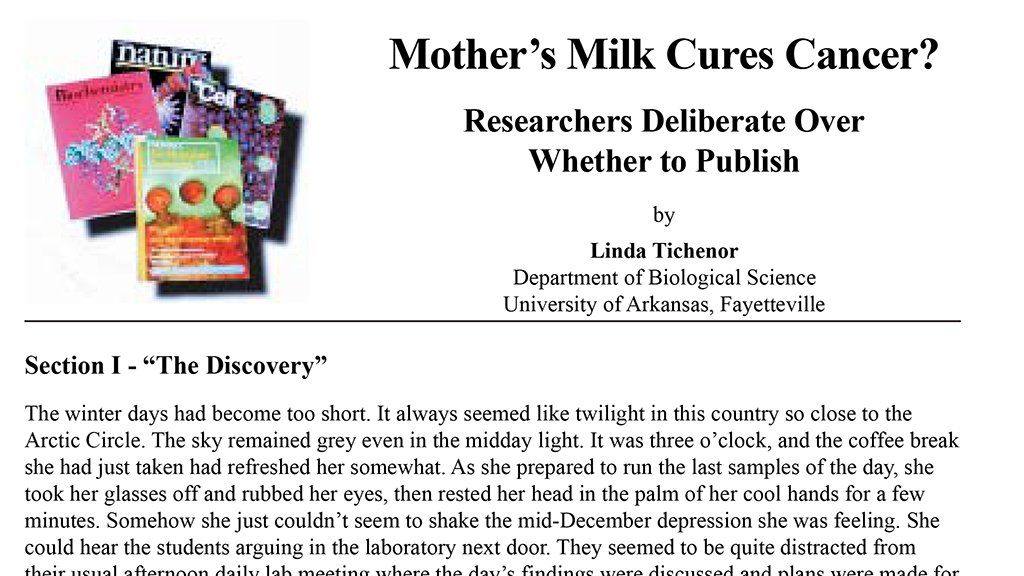Abstract
This case study on the immune system, cell cycle regulation, and cancer biology explores the role that serendipity plays in new discoveries in science, how scientific research is funded, and the personal and professional implications of unexpectedly finding one’s self on the “cutting-edge.” The case was developed to help undergraduates, particularly non-science majors, understand how politics and culture play a vital role in the scientific process, and that scientific research is provisional and a product of social and cultural interaction. In addition to these issues, the case explores key concepts and content in biology and biochemistry, including the control of cell division, apoptosis, immunity development, microbial biology, genetic engineering, and breast feeding in humans. Note: An answer key is not available for this case study.



